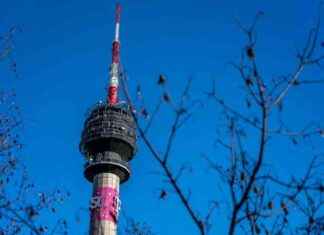Sign up for one of our email newsletters.
Updated 2 hours ago
The Pittsburgh Water and Sewer Authority on Thursday lifted the flush and boil water advisory that impacted about 100,000 customers.
“At no time was the public in danger,” Mayor Bill Peduto said, “but as a regulator, the Department of Environmental Protection must take actions when something in the system does not work properly.”
By lifting the order at 11:45 a.m., officials from DEP confirmed that drinking water requirements are being achieved and there is no risk to the drinking water supply.
“First of all, let me apologize to all of our residents in the city of Pittsburgh for this massive inconvenience,” PWSA interim Executive Director Bernard R. Lindstrom said. “I know that without a doubt, it created probably many hardships that I will never hear about nor know, and it created uncertainty in many people's minds that may have kept many up at night.”
Trouble began Sunday when PWSA recorded “erratic” chlorine readings at a cholometer outside the filtration plant servicing the Highland Park Reservoir, which supplies water to 60 percent of the city. PWSA adds chlorine as a disinfectant to kill pathogens that might enter the system.
DEP spokesman Neil Shader had said the agency issued the order because of a breakdown in chlorine treatment.
The primary reason for the order, however, was not the “erratic” reading that since has been corrected but rather a technical glitch, PWSA officials clarified Wednesday.
“That's what caused them to look, but that really isn't the issue,” said Bob Weimar, PWSA's interim director of engineering.
Regulators issued the order because they flagged a bigger problem: time that water at the plant was exposed to chlorine, Weimar said.
“The issue in (state regulators') minds was you need to provide a certain amount of protection — they call it a log removal — which is the amount of chlorine you have in the water and the amount of time the water is exposed to it before a customer drinks it,” he said.
PWSA had thought it was taking the treated water one to two hours to get to customers, Weimar said, but testing at DEP's request showed it was taking only 40 to 55 minutes. That placed PWSA 25 percent below state standards for chlorine contact periods.
Late Wednesday night, PWSA provided DEP with documentation and data to prove the authority achieved compliance and its drinking water was safe, PWSA said.
Officials from the city, PWSA and DEP met Thursday morning to discuss PWSA's latest analysis.
Our editors found this article on this site using Google and regenerated it for our readers.





